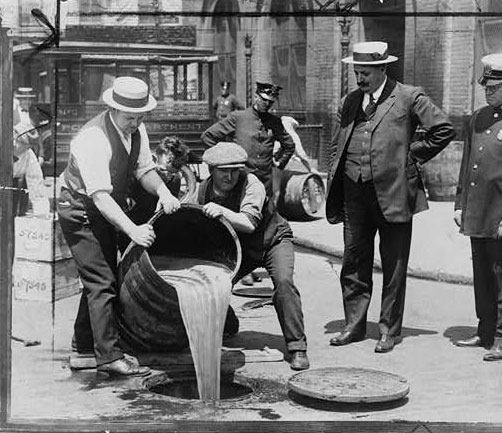Economics of Prohibition
While the manufacture and distribution of alcohol had been a lucrative and legitimate industry before prohibition, after the Eighteenth Amendment passed, the industry was taken over by organized crime and its culture.

Illegal alcohol being dumped down the sewer after being discovered by police
Alcohol was still manufactured legally in Canada and the Caribbean. It was being manufactured illegally in parts of the United States. The alcohol was then transported by men known as “bootleggers.” Bootleggers smuggled the alcohol across borders and state lines to distribute it to customers, including owners of illegal bars, called “speakeasies,” that operated in many cities. Speakeasies were generally private clubs that required membership.
The most successful bootleggers were members of organized crime organizations that controlled the distribution of alcohol. These organizations competed, often violently, for the control of territory. Al Capone was an organized crime boss in Chicago whose income from bootlegging averaged over 58 million dollars per year. Because Capone was a slick crime boss, the police could never really catch him with enough evidence to arrest him for his criminal acts. In the end, he was arrested for income tax evasion.